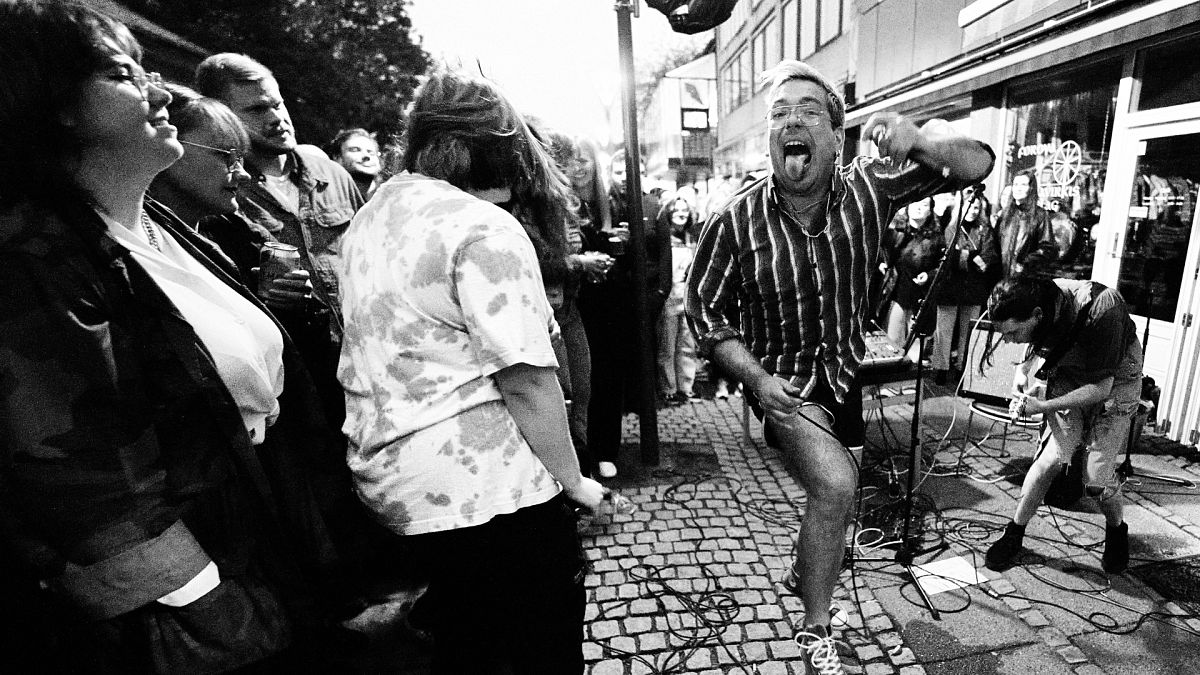
‘Lynch/Oz’: Film Review | Tribeca 2022
It shouldn’t surprise anyone that an artist who famously goes fishing for material beneath the surface of his conscious mind (via meditation) would frequently “catch ideas” with bits of childhood memories stuck to them, hard as barnacles. For David Lynch, whose films conjure some of the most disturbing psychological states in mainstream cinema, one might expect those memories to be of something less wholesome than The Wizard of Oz. Yet the 1939 classic echoes throughout Lynch’s work, and not just in things as obvious as red shoes and heavy, important curtains.
In Lynch/Oz, Alexandre O. Philippe gathers a handful of gifted filmmakers and writers to, among other things, guess at what all those allusions mean. Though frustratingly unfocused and sometimes overreaching (even compared to Philippe’s other docs, which are never what you’d call precision-crafted), the film is consistently enjoyable, with just enough flashes of insight to justify its existence.
Related Stories
Lynch/Oz
The Bottom LineAn enjoyable, if not entirely satisfying, look at a strange cinematic affinity.
Venue: Tribeca Film Festival (Spotlight Documentary)
Director-Screenwriter: Alexandre O. Philippe
1 hour 49 minutes
Six filmmakers (including filmmaker/author/national treasure John Waters) are joined here by film critic and journalist Amy Nicholson, who starts things off with one of the doc’s most surprising observations. In a chapter titled Wind, she cues up the beginning of Oz and points out the singers on the soundtrack whose voices hint at the tornado to come. Is this wind the grandfather of the whooshes filling Lynch’s distinctive sound design? Viewers who’ve had cause to visit boiler rooms may believe Lynch’s soundscape is more subterranean than atmospheric; but the idea grows on you.
The second chapter, Membranes, finds an ideal pairing of theme and speaker: Rodney Ascher, whose work often looks at people hovering between states of consciousness or ways of perceiving reality, speaks a bit about how thin the barriers between worlds are for Lynch’s characters. How many alternate realities does Dale Cooper step through, for instance, in Twin Peaks? But this chapter would work much better as a standalone short, as the link to Oz is its least compelling element. Ascher gets more mileage out of references to Kubrick and an extended, appropriately spooky reference to The Miracle Worker.
Ascher is the first here to admit that the basic template of Oz — protagonist gets stuck someplace strange and wants to go home — is sufficiently generic to “apply to most anything.” The doc offers many dubious comparisons, both self-acknowledged and otherwise, and Philippe pushes further, sometimes stuffing in too many fast-cut clips from unrelated films. (Why am I seeing a clip of Babe: A Pig in the City right now? Oh, right, he’s a fish out of water. Just like Dorothy, and, um, the Elephant Man?) The connection-making gets pretty tortured in a segment where filmmakers Justin Benson and Aaron Moorhead wind up using I Wake Up Screaming to connect dots between Lynch, film noir and Oz via “Over the Rainbow.” And that’s after looking at parallels between Oz and Suspiria, Pan’s Labyrinth and The Big Lebowski.
Chapters narrated by Waters and David Lowery are predictably engaging, but have far more to do with their speakers’ lives and artistry than Lynch’s. Even the natural connections here — like the way the Midnight Movie phenomenon launched both Waters’ career and Lynch’s — have little if any bearing on the doc’s thesis, and you can practically feel an off-mic Philippe pushing Waters to speculate that “David might” share this or that approach to storytelling.
One of the film’s least obvious choices may be its best: Girlfight director Karyn Kusama comes to her segment, Multitudes, so amply prepared you wish she could just take the film over. Beginning with a small way her life intersected with Lynch’s (before directing, she used to wait on Lynch at a New York City diner he frequented), she then recalls attending a Q&A in which he said, “There is not a day that goes by that I don’t think about The Wizard of Oz.”
Kusama touches on the obvious Wild at Heart stuff (for those who haven’t seen it, it’s the most Oz-stuffed thing Lynch has made) before ping into some beautiful thoughts on Mulholland Drive. She asks a seminar-worthy question or two — can we understand more about a character from her dreams than from her “real” life? — before moving on to very specific but far from obvious connections having to do with makeup and sound recording. Phillipe’s choice of illustrative film clips is best in this section, pairing instances of fluttering fingers and floating, magical orbs while Kusama discusses Oz as Lynch’s “foundational text.” If even half the film were as sharp and coherent as Kusama’s chapter, this would be a must-watch for anyone trying to understand a filmmaker who consistently refuses to tell anyone what his work means.












































































